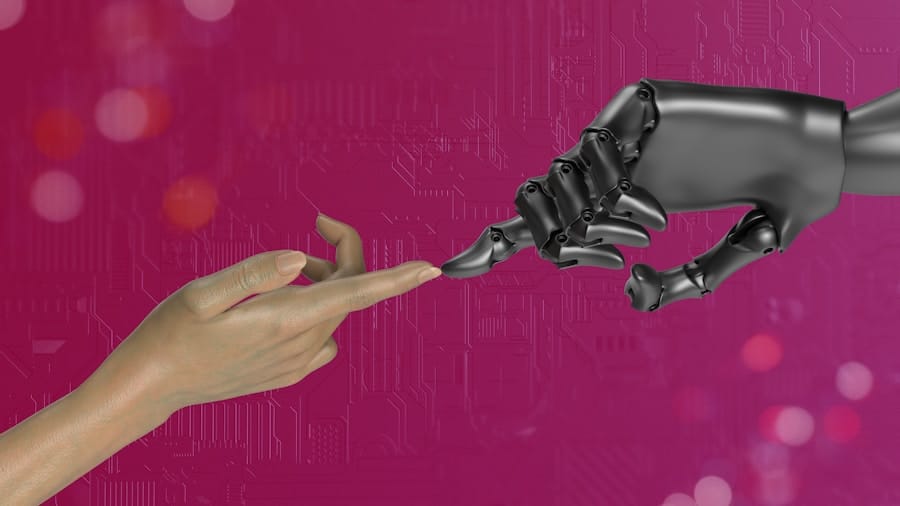The rise of artificial intelligence (AI) in autonomous commerce has been nothing short of revolutionary. AI has enabled businesses to automate various processes, from customer service to inventory management, leading to increased efficiency and cost savings. With the help of AI, businesses can now analyze large volumes of data to gain valuable insights and make informed decisions. This has led to the development of autonomous systems that can operate without human intervention, such as self-driving cars and automated warehouses. As AI continues to advance, it is expected to play an even larger role in autonomous commerce, transforming the way businesses operate and interact with customers.
The integration of AI in autonomous commerce has also led to the development of personalized shopping experiences for consumers. AI-powered recommendation systems can analyze a customer’s past purchases and browsing history to suggest products that are likely to be of interest. This has not only improved the customer experience but has also led to increased sales for businesses. Additionally, AI has enabled businesses to automate customer service through chatbots and virtual assistants, providing round-the-clock support to customers. As AI technology continues to evolve, it is expected that autonomous commerce will become even more personalized and efficient, leading to a more seamless shopping experience for consumers.
The Role of Cryptocurrency in Autonomous Transactions
Cryptocurrency has emerged as a disruptive force in the world of finance, and its role in autonomous transactions cannot be overlooked. Cryptocurrencies such as Bitcoin and Ethereum have enabled peer-to-peer transactions without the need for intermediaries, leading to lower transaction fees and faster settlement times. This has made cryptocurrency an attractive option for businesses looking to streamline their payment processes and reduce costs. Additionally, the decentralized nature of cryptocurrency has made it resistant to censorship and fraud, providing businesses with a secure and reliable payment option for autonomous transactions.
The use of cryptocurrency in autonomous transactions has also opened up new opportunities for global commerce. With traditional payment methods, businesses often face challenges when conducting cross-border transactions, such as high fees and long settlement times. Cryptocurrency has eliminated many of these barriers, allowing businesses to conduct transactions with partners and customers around the world with ease. This has led to increased globalization and has opened up new markets for businesses to explore. As the adoption of cryptocurrency continues to grow, its role in autonomous transactions is expected to become even more prominent, revolutionizing the way businesses conduct commerce.
How AI and Cryptocurrency are Revolutionizing the Future of Commerce
The integration of AI and cryptocurrency in autonomous transactions is revolutionizing the future of commerce in numerous ways. AI has enabled businesses to automate various processes, leading to increased efficiency and cost savings. With the help of AI, businesses can now analyze large volumes of data to gain valuable insights and make informed decisions. This has led to the development of autonomous systems that can operate without human intervention, such as self-driving cars and automated warehouses. As AI continues to advance, it is expected to play an even larger role in autonomous commerce, transforming the way businesses operate and interact with customers.
Cryptocurrency has emerged as a disruptive force in the world of finance, enabling peer-to-peer transactions without the need for intermediaries. This has led to lower transaction fees and faster settlement times, making cryptocurrency an attractive option for businesses looking to streamline their payment processes. Additionally, the decentralized nature of cryptocurrency has made it resistant to censorship and fraud, providing businesses with a secure and reliable payment option for autonomous transactions. The use of cryptocurrency in autonomous transactions has also opened up new opportunities for global commerce, allowing businesses to conduct transactions with partners and customers around the world with ease. As the adoption of cryptocurrency continues to grow, its role in autonomous transactions is expected to become even more prominent, revolutionizing the way businesses conduct commerce.
The Benefits of Integrating AI and Cryptocurrency in Autonomous Transactions
The integration of AI and cryptocurrency in autonomous transactions offers numerous benefits for businesses. AI has enabled businesses to automate various processes, leading to increased efficiency and cost savings. With the help of AI, businesses can now analyze large volumes of data to gain valuable insights and make informed decisions. This has led to the development of autonomous systems that can operate without human intervention, such as self-driving cars and automated warehouses. As AI continues to advance, it is expected to play an even larger role in autonomous commerce, transforming the way businesses operate and interact with customers.
Cryptocurrency has emerged as a disruptive force in the world of finance, enabling peer-to-peer transactions without the need for intermediaries. This has led to lower transaction fees and faster settlement times, making cryptocurrency an attractive option for businesses looking to streamline their payment processes. Additionally, the decentralized nature of cryptocurrency has made it resistant to censorship and fraud, providing businesses with a secure and reliable payment option for autonomous transactions. The use of cryptocurrency in autonomous transactions has also opened up new opportunities for global commerce, allowing businesses to conduct transactions with partners and customers around the world with ease. As the adoption of cryptocurrency continues to grow, its role in autonomous transactions is expected to become even more prominent, revolutionizing the way businesses conduct commerce.
Challenges and Risks of AI and Cryptocurrency Integration in Autonomous Commerce
While the integration of AI and cryptocurrency in autonomous commerce offers numerous benefits, it also presents several challenges and risks that businesses must consider. One of the main challenges is the potential for job displacement as a result of automation. As businesses continue to adopt AI technology for autonomous processes, there is a risk that certain jobs may become obsolete, leading to unemployment for some workers. Additionally, there are concerns about the ethical implications of AI-powered systems making decisions without human intervention, such as self-driving cars making split-second decisions on the road.
Another challenge is the potential for security breaches and fraud in cryptocurrency transactions. While cryptocurrency offers secure and reliable payment options for autonomous transactions, it is not immune to cyber attacks and hacking attempts. Businesses must invest in robust security measures to protect their cryptocurrency holdings and ensure the safety of their transactions. Additionally, there are concerns about the volatility of cryptocurrency prices, which can impact the stability of autonomous transactions. Businesses must carefully monitor cryptocurrency markets and consider hedging strategies to mitigate potential risks.
The Future Outlook for AI and Cryptocurrency in Autonomous Transactions
The future outlook for AI and cryptocurrency in autonomous transactions is promising, with continued advancements expected to revolutionize the way businesses conduct commerce. As AI technology continues to evolve, it is expected to play an even larger role in autonomous commerce, transforming the way businesses operate and interact with customers. From personalized shopping experiences to automated supply chain management, AI will continue to drive efficiency and innovation in autonomous transactions.
Similarly, the adoption of cryptocurrency is expected to continue growing as businesses recognize its potential for streamlining payment processes and expanding global commerce opportunities. As more businesses embrace cryptocurrency for autonomous transactions, it is likely that new use cases will emerge, further solidifying its role in the future of commerce. Additionally, advancements in blockchain technology are expected to enhance the security and reliability of cryptocurrency transactions, making it an even more attractive option for businesses.
Implementing AI and Cryptocurrency Integration in Autonomous Commerce
Implementing AI and cryptocurrency integration in autonomous commerce requires careful planning and consideration of various factors. Businesses must first assess their specific needs and objectives for adopting AI technology and cryptocurrency in their operations. This may involve conducting a thorough analysis of existing processes and identifying areas where automation can drive efficiency and cost savings.
Once business objectives are established, it is important to invest in the right technology infrastructure and talent to support AI and cryptocurrency integration. This may involve partnering with technology providers or hiring skilled professionals with expertise in AI development and cryptocurrency management. Additionally, businesses must ensure that they have robust security measures in place to protect their cryptocurrency holdings and transactions from potential cyber threats.
Furthermore, businesses must consider regulatory compliance when integrating AI and cryptocurrency into their operations. As these technologies continue to evolve, there may be new regulations and guidelines that impact how businesses can use AI and cryptocurrency for autonomous transactions. It is important for businesses to stay informed about regulatory developments and ensure that they are compliant with relevant laws and standards.
In conclusion, the integration of AI and cryptocurrency in autonomous commerce offers numerous benefits for businesses looking to streamline their operations and expand their global reach. While there are challenges and risks associated with these technologies, careful planning and investment can help businesses navigate these complexities and leverage the full potential of AI and cryptocurrency for autonomous transactions. As technology continues to advance, it is likely that AI and cryptocurrency will play an even larger role in shaping the future of commerce, driving innovation and efficiency across various industries.




